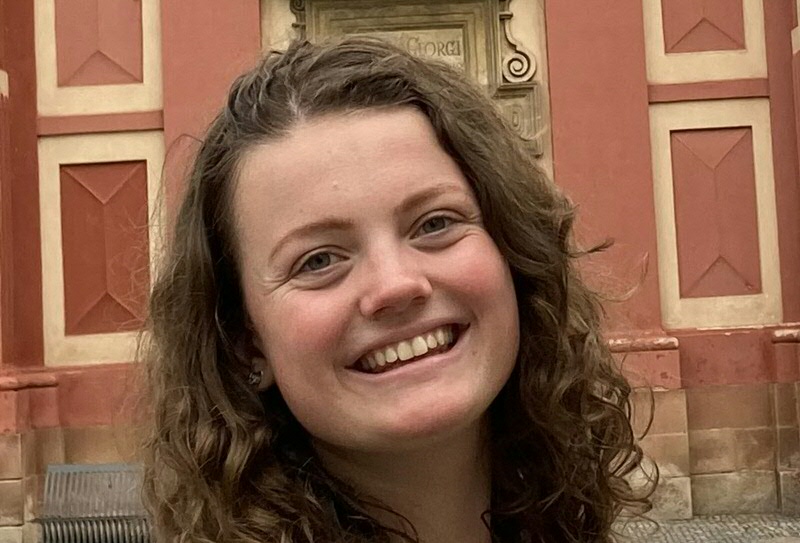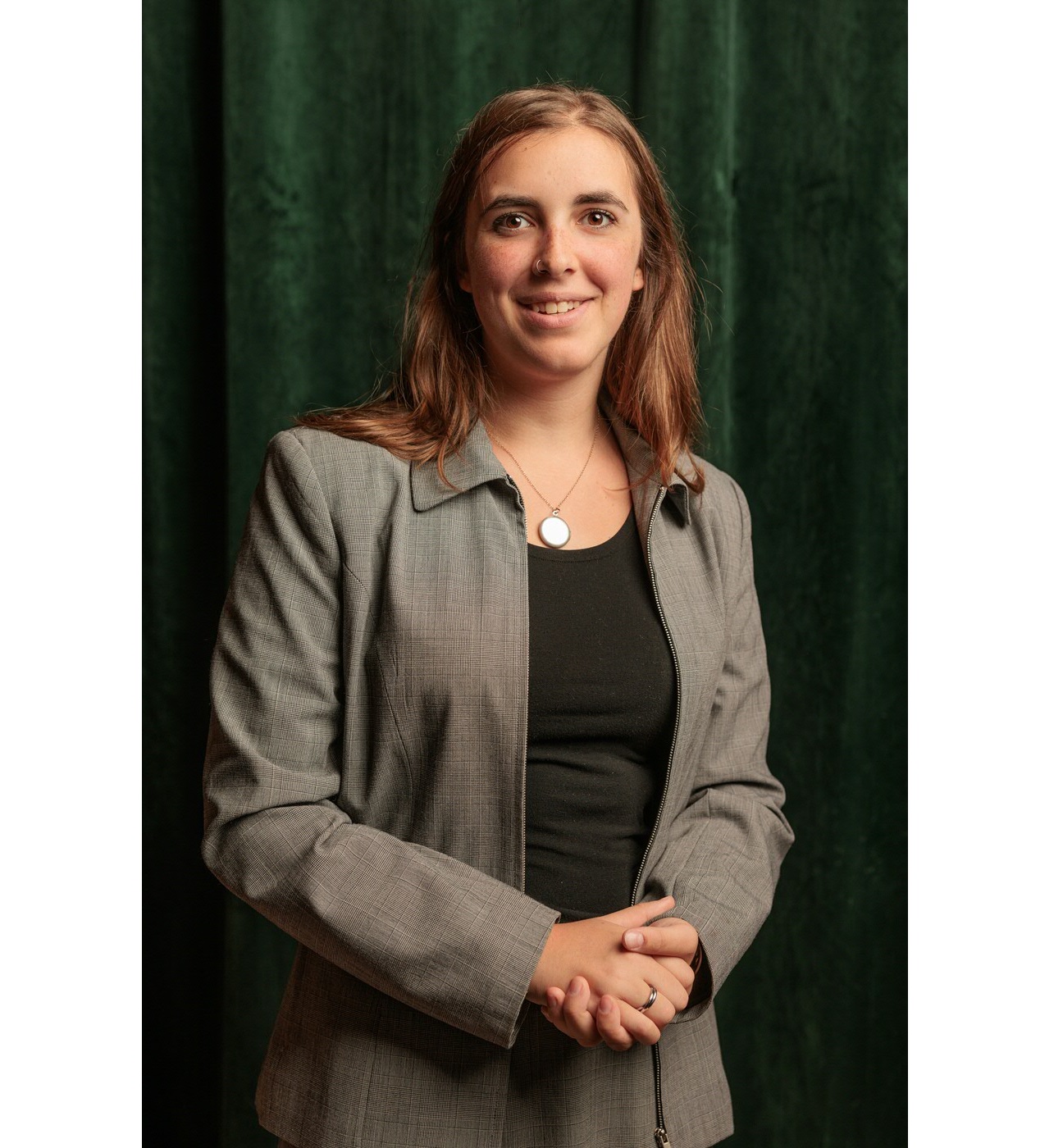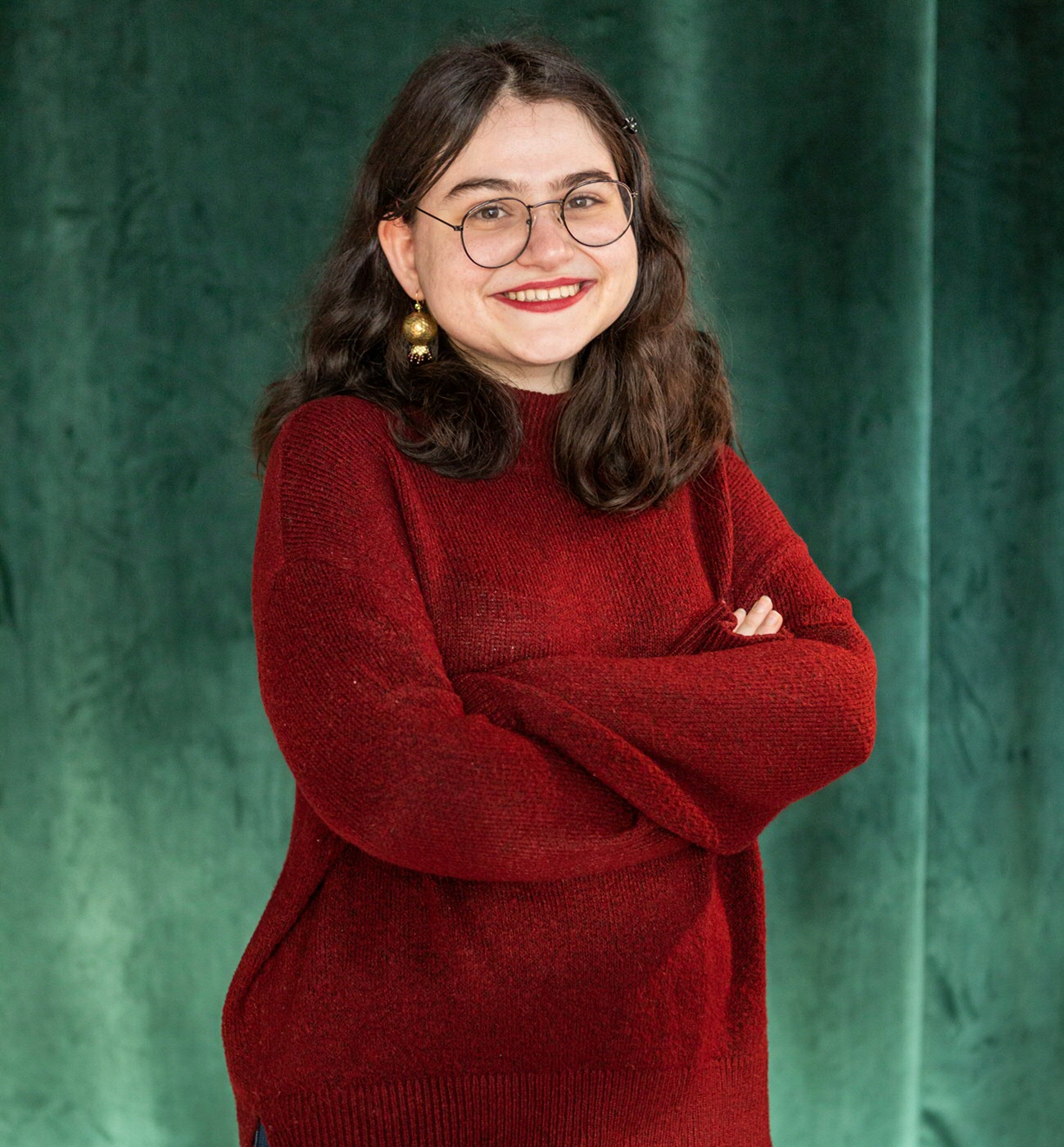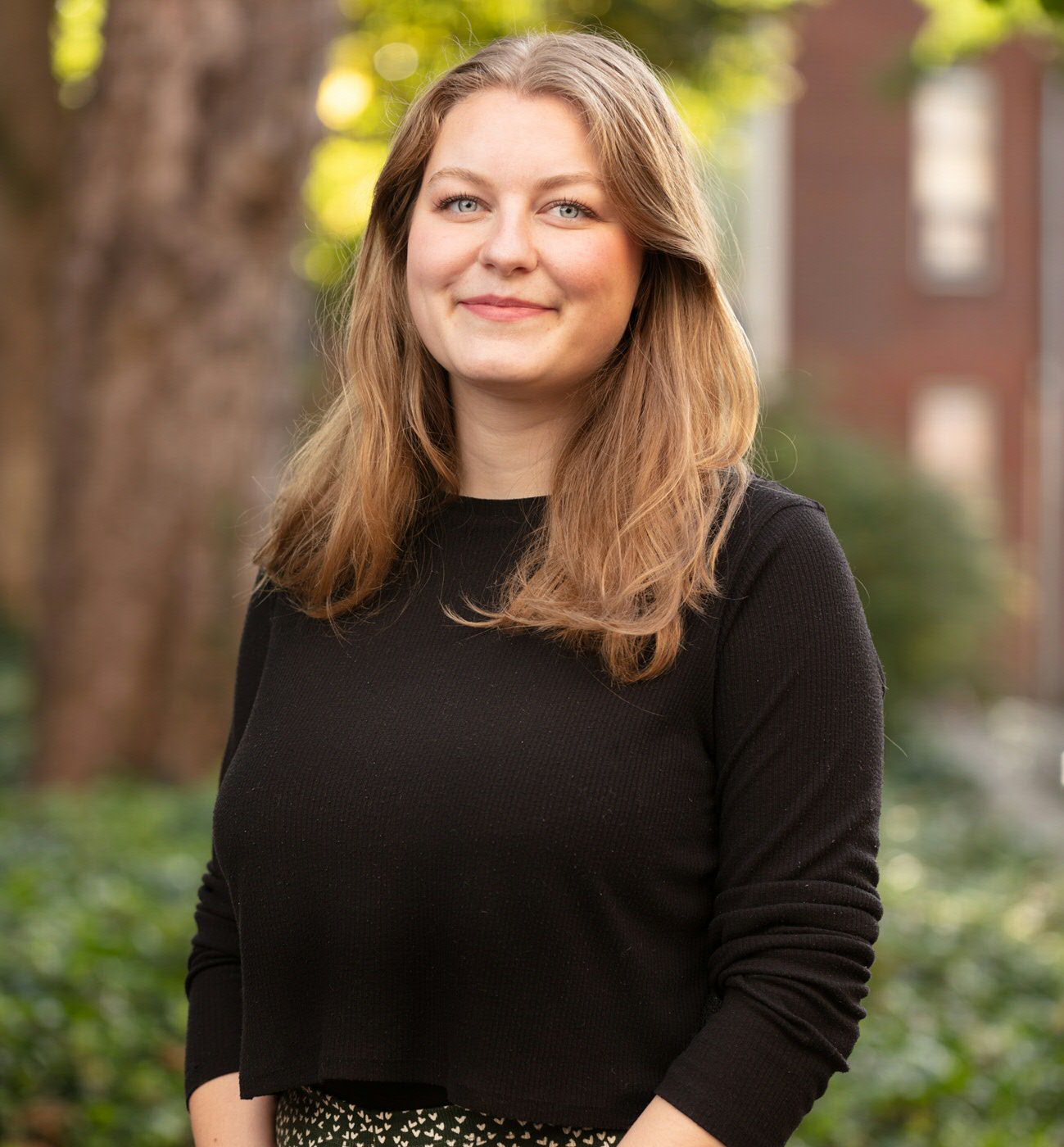
Ben je nieuwsgierig naar de samenhang tussen heden en verleden? Wil je je verdiepen in de achtergronden van historische gebeurtenissen? Dan is deze opleiding iets voor jou.
Tijdens de bacheloropleiding Geschiedenis zoek je naar
verklaringen voor ontwikkelingen in het heden en het verleden. Ook
leer je hoe verschillende gebeurtenissen met elkaar samenhangen. Je
durft diep te graven en stelt kritische vragen.
De opleiding duurt 3 jaar. In het 1e jaar krijg je een overzicht
van de geschiedenis van de Oudheid tot nu en bestudeer je de
Nederlandse geschiedenis. In het 2e jaar onderzoek je de
geschiedenis aan de hand van thema's, zoals economische en sociale
geschiedenis, politieke geschiedenis en cultuurgeschiedenis. In het
3e jaar verdiep je je kennis, onder andere met een college over
geschiedtheorie en een college over een grote internationale regio.
Je rondt de opleiding af met een scriptie. Als geschiedenisstudent
kun je een deel van je programma zelf samenstellen.
Naast de reguliere track waarin het meeste onderwijs in het
Nederlands is, kun je ook kiezen voor de International track,
waarin het onderwijs volledig in het Engels is. Je kunt de bachelor
Geschiedenis zowel in voltijd als deeltijd volgen, echter is er
geen apart deeltijdprogramma. Specialiseren doe je in de
masterfase.
Meer weten? Bekijk de korte voorlichtingsvideo.
In het eerste jaar behandel je aan de hand van chronologische vakken de belangrijkste gebeurtenissen en ontwikkelingen van de oudheid tot nu. Tevens werk je aan academische onderzoeks- en schrijfvaardigheden. Daarnaast kom je in aanraking met historische bronnen en theorieën van de geschiedbeoefening. Kortom, het eerste jaar is zeer veelzijdig en legt een stevige basis voor de rest van je studie.
| Semesters | ||||
|---|---|---|---|---|
| VakkenVakkencatalogus > | 1a | 1b | 2a | 2b |
| Globalisering: Economische en Sociale geschiedenis (5 EC) | ||||
| Historisch Onderzoek I: Inleiding (5 EC) | ||||
| Oude geschiedenis (5 EC) | ||||
| Eigentijdse geschiedenis (5 EC) | ||||
| Historisch Onderzoek II: Vaardigheden (5 EC) | ||||
| Middeleeuwse geschiedenis (5 EC) | ||||
| Historisch onderzoek III: Historisch Debat (5 EC) | ||||
| Nederlandse geschiedenis (5 EC) | ||||
| Vroeg-moderne geschiedenis (5 EC) | ||||
| Historisch Onderzoek IV: Bronnen (5 EC) | ||||
| Moderne geschiedenis (5 EC) | ||||
| Regio's 1: Introductie (5 EC) | ||||
In het tweede jaar leer je de geschiedenis te benaderen vanuit thematische invalshoeken. Je leert drie 'soorten' geschiedenis kennen, waarbij elk zijn eigen accenten legt en eigen theorieën gebruikt: de cultuurgeschiedenis, de politieke geschiedenis en de economische en sociale geschiedenis. Ook volg je een kernvak, een werkcollege waarin je door het bestuderen van literatuur en bronnen inhoudelijke kennis en onderzoek vaardigheden opdoet.
| Semesters | ||||
|---|---|---|---|---|
| VakkenVakkencatalogus > | 1a | 1b | 2a | 2b |
| Bronnen en methoden (5 EC) | ||||
| Themacollege Cultuurgeschiedenis (10 EC) Studenten volgen hoorcolleges over belangrijke theorieën en concepten uit de cultuurgeschiedenis. Je kunt daarnaast kiezen uit werkcollegegroepen met verschillende onderwerpen. Voorbeelden van onderwerpen van dit jaar zijn: '(Historical) Virtual Communities', 'Jeruzalem en Rome: Botsende beschavingen in de oudheid?', 'Sex in early modern Europe' en 'Joodse Stadjers in de Groninger herinneringscultuur' | ||||
| Themacollege Politieke Geschiedenis (10 EC) Studenten volgen hoorcolleges over belangrijke theorieën en concepten uit de Politieke geschiedenis. Je kunt daarnaast kiezen uit werkcollegegroepen met verschillende onderwerpen. Voorbeelden van onderwerpen van dit jaar zijn: 'Hoe word je een Romeinse senator?', 'Building politics: politics and architecture in twentieth-century Europe' en 'De leider als held(in). Crisis en politiek leiderschap in de moderne tijd.' | ||||
| Theorie I: Perspectieven op Geschiedenis (5 EC) | ||||
| Regio's II: Historiografie (5 EC) | ||||
| Themacollege Economische en Sociale Geschiedenis (10 EC) Studenten volgen hoorcolleges over belangrijke theorieën en concepten uit de Economische en Sociale geschiedenis. Je kunt daarnaast kiezen uit werkcollegegroepen met verschillende onderwerpen. Voorbeelden van onderwerpen van dit jaar zijn: 'The Great Divergence: Why Europe Grew Rich And India Did Not', 'Milieugeschiedenis van Nederland: de regionale impact op natuur en milieu sinds 1850', 'De modernisering van de Noord-Nederlandse dorpssamenleving' en 'Economische ongelijkheid en sociale instabiliteit in de antieke wereld'. | ||||
| Kernvak (10 EC) De studenten volgen één kernvak naar keuze binnen de drie thema's: cultuurgeschiedenis, politieke geschiedenis en economische & sociale geschiedenis. | ||||
| Theorie II: Historiografie van de Wereldgeschiedenis (5 EC) | ||||
In het derde jaar begin je met een minor naar keuze (buitenlandverblijf, beroepsgericht of verbredend). In het laatste half jaar kun je je verdiepen in een grote internationale regio. Daarnaast leer je hoe je geschiedenis kunt vertalen naar een breed publiek en hoe je van geschiedenis je beroep kunt maken. Je sluit je bachelor af met het schrijven van een scriptie.
| Semesters | ||||
|---|---|---|---|---|
| VakkenVakkencatalogus > | 1a | 1b | 2a | 2b |
| Minor (30 EC) | ||||
| Theorie III: Geschiedtheorie in de Praktijk (5 EC) | ||||
| Bachelorscriptie (10 EC) | ||||
| Regio's III: Casestudies (10 EC) | ||||
| Workshop Public History (5 EC) | ||||
Let op: hierboven staat het programma van het huidige collegejaar (2025-2026). Per 2026-2027 wijzigt het vakkenaanbod van deze opleiding. In het najaar van 2025 wordt hierover meer bekend.
| Programma-opties |
|---|
| Minoren (minor) Het vijfde semester besteed je aan je minor: een pakket samenhangende vakken dat toekomstgericht is. Het bereidt je voor op een vervolg in een mastertrack of op de arbeidsmarkt. Kies uit een careerminor, buitenlandminor, universitaire minor of facultaire minor. |
| University of Groningen Honours College (honoursprogramma) Het Honours College biedt talentvolle en gemotiveerde studenten de kans meer uit zichzelf te halen. Dat doe je door het volgen van een extra (honours)programma van 30 studiepunten naast je reguliere bacheloropleiding van 180 studiepunten, en door tal van andere activiteiten die je samen met honoursstudenten van andere opleidingen onderneemt en organiseert. Ontwikkeling van talent en eigen initiatief zijn de uitgangspunten van het honoursprogramma van de RUG. |
Je kunt onder meer studeren in Scandinavië, Oost-Europa, Verenigd Koninkrijk, Rusland, Zuid-Europa, de Verenigde Staten, verschillende landen in Azië en Zuid-Afrika.
Met het VWO examen Engels voldoe je aan de taaleis.
Met het VWO examen Engels voldoe je aan de taaleis.
Met het VWO examen Engels voldoe je aan de taaleis.
Met het VWO examen Engels voldoe je aan de taaleis.
Taaleis Engels: minimum TOEFL eis iBT 90 (met een minimum van 21 voor alle onderdelen), of IELTS 6.5 (met een minimum van 6 voor alle onderdelen) of Cambridge C1 Advanced of C2 Proficiency met een minimum score van 180. Klik op de link voor meer informatie: https://www.rug.nl/let/studeren-bij-ons/bachelor/aanmelding-en-inschrijving/language-requirements-ba
De opleiding verzorgt matching. Deelname is optioneel. Het advies is niet bindend.
De Faculteit der Letteren gaat er van uit dat jij, via een bezoek aan de Open dagen, deelname aan een Eén Dag student en/of aan een Webklas, jezelf goed hebt voorbereid op de opleiding van jouw keuze. Op basis van deze voorlichtingsactiviteiten bepaal jijzelf of je goed matcht met de opleiding.
Vragen over matching bij de Faculteit der Letteren? Hier kun je verdere informatie vinden: www.rug.nl/matching
| Type student | Deadline | Start opleiding |
|---|---|---|
| Nederlandse studenten | 01 mei 2026 | 01 september 2026 |
| EU/EEA studenten | 01 mei 2026 | 01 september 2026 |
| non-EU/EEA studenten | 01 mei 2026 | 01 september 2026 |
The Faculty of Arts believes students can decide for themselves whether they match with their chosen programme based on the available bachelor programme information, by visiting the Open Days, and by participating in a Webclass and/ or Student for a Day. If you are unable to attend one of these activities, a final opportunity for matching is to contact one of the students of the programme in June.
If you have any further questions about matching, check out: www.rug.nl/matching
| Specifieke eisen | Extra informatie |
|---|---|
| vooropleiding |
A Dutch VWO diploma, a German Abitur, an International Baccalaureate diploma, a European Baccalaureate or another diploma that is sufficient for acceptance to a Dutch university. For other VWO-equivalent qualifications, see: https://www.rug.nl/education/application-enrolment-tuition-fees/admission/procedures/application-informatie/with-non-dutch-diploma/entry-requirements/bachelor-entry-requirements/vwo-equivalent-qualifications. Students with a Dutch 'hbo-propedeuse' diploma also need to meet the language requirements mentioned below. |
| overige toelatingseisen |
Additional requirements English: Minimum requirement of TOEFL iBT 90 (with a minimum of 21 on all items), or IELTS 6.5 (with a minimum of 6 on all items) or Cambridge C1 Advanced or C2 Proficiency with a minimum score of 180. |
| Type student | Deadline | Start opleiding |
|---|---|---|
| Nederlandse studenten | 01 mei 2026 | 01 september 2026 |
| EU/EEA studenten | 01 mei 2026 | 01 september 2026 |
| non-EU/EEA studenten | 01 mei 2026 | 01 september 2026 |
Als je je universitaire opleiding voort wilt zetten door een master te volgen, zoals de meeste studenten doen, zijn er allerlei verschillende vervolgopleidingen waar je uit kunt kiezen. Master tracks die aansluiten op de BA Geschiedenis zijn:
Na je studie Geschiedenis kun je kritisch en probleemgericht denken. Je bent in staat grote hoeveelheden informatie te verwerken en kunt de uitkomsten goed presenteren. Historici vinden vaak werk in de journalistiek, bij musea, culturele instellingen of uitgeverijen. Ook gaan ze regelmatig aan de slag in de politiek, bij de overheid of in het bedrijfsleven.
De term 'wetenschappelijk onderwijs' zegt het al: aan een universiteit zijn onderwijs en onderzoek altijd nauw met elkaar verbonden. Alle hoogleraren en bijna alle docenten waarvan je college krijgt doen ook onderzoek in hun vakgebied. Het onderwijs dat je krijgt is dus deels gebaseerd op het lopende onderzoek aan de faculteit. Bekijk een overzicht van het onderzoek bij de afdeling Geschiedenis.

Over Hanna
Heyhoi, ik ben Hanna, 19 jaar en ik zit momenteel in mijn tweede
jaar van de bachelor Geschiedenis. Naast mijn studie ben ik actief
lid van een christelijke studentenvereniging, werk ik bij een
boekhandel, probeer ik zo af en toe nog wat te sporten en hou ik
heel erg van lezen en gezelligheid.
Waarom Geschiedenis?
Plezier in het vak geschiedenis was de grootste reden voor mij om
deze studie te kiezen. Hoe mensen in het verleden leefden heeft me
altijd mateloos geboeid. Verder vind ik het heel interessant om te
kijken naar grote ontwikkelingen die door de tijd heen te zien
zijn, hiervan te leren en op vandaag de dag toe te passen.
Daarnaast heeft alles wat er nu is een geschiedenis. Als je die
geschiedenis kent en snapt, helpt het ook heel erg om de
samenleving beter te begrijpen. En als je het beter begrijpt, kan
je er ook beter iets aan veranderen, of je snapt waarom het zo moet
blijven zoals het is. Deze studie is dus van enorm maatschappelijk
belang.
Voor het maken van de keuze voor Geschiedenis heb ik me verdiept in
heel veel studies en heb ik heel veel open dagen in verschillende
steden bezocht. Daar sprong Geschiedenis echt uit. Vervolgens ben
ik naar meerdere meeloopdagen geweest om te kijken of het echt wat
voor mij was en in welke stad ik wilde gaan studeren.
Lees hier meer over Hanna en waarom zij koos voor een studie Geschiedenis in Groningen.

Hi my name is Madison (but you can just call me Maddie)! I just started my third year of my Bachelor's degree. I am all the way from Indiana in the U.S. and I came here to study History (in the International track of course). I am very involved in the study association for History, Ubbo Emmius, and I do various martial arts in Groningen. I enjoy cooking with my friends and exploring all the fun things the Netherlands has to offer.
I find history fascinating because everyone sees things in a different way in history so you can take the same exact event and write thousands of different essays from all kinds of perspectives and all of those essays could be true at the same time. Learning about history (and why we remember what we do) can tell us so much about our current society. Nothing in the past is preserved by accident, everything is kept, or erased, for a reason.

Hi! My name is Ayşe Rana Özsan, I'm 22 years old and I have just begun my third year of the History programme here at the University of Groningen. I came here all the way from Canada and, predictably, I'm in the international track of this programme. I'm an active member of our study association Ubbo Emmius and participate in several committees within the university.
Besides my involvement in the university itself, I enjoy spending time with my friends, learning languages, and travelling as much as I possibly can. That, and befriending the many stray cats wandering about Groningen.
History has always interested me as a subject, because so much of the world around us can only be fully understood when examining the past. I had many other interests before starting university and, in fact, majored in business in 2018. However, when I realized my favourite courses were two electives in History, I knew that changing my programme was the right choice for me.

Hoi! Mijn naam is Bibi Koekkoek, ik ben 23 jaar oud en rond momenteel mijn studie Geschiedenis af. Ik ben actief bij de studievereniging GHD Ubbo Emmius en heb net mijn bestuursjaar achter de rug. Naast studeren en de studievereniging vind ik het ontzettend leuk om te tennissen, muziek te luisteren en af en toe creatief aan de slag te gaan door te tekenen of te schilderen. Dat ik dit jaar studentambassadeur ben, vind ik een erg leuke toevoeging aan dit lijstje!.
Wanneer ik vroeger naar de bibliotheek ging, kwam ik niet alleen thuis met fictieve boeken, maar nam ik ook informatieve boeken mee over geschiedenis. Wat mij toen vooral ontzettend fascineerde was Egyptologie. De jaren daarop is mijn interesse in geschiedenis alleen maar toegenomen. Het is een ontzettend veelzijdige studie waar je je creativiteit vaak goed in kwijt kan! Ondanks dat ik ontzettend getwijfeld heb over wat ik wou studeren, heb ik bij Geschiedenis altijd een goed gevoel gehad. Behalve het feit dat ik geschiedenis ontzettend leuk vind, wist ik ook nog niet (en nog steeds niet helemaal), wat ik in de toekomst wilde doen. Dat vind ik een van de mooie dingen van de studie Geschiedenis. Het is zo breed dat je je goed kan oriënteren en verschillende dingen kan proberen om erachter te komen wat goed bij jou past. Zelfs als je veel verschillende interesses buiten geschiedenis om hebt, valt dit ontzettend goed te combineren. Denk hierbij bijvoorbeeld aan Gender Studies, Internationale Betrekkingen of Filosofie.
Zit je op het vwo en wil je graag weten hoe dat is, studeren? De opleiding Geschiedenis biedt een webklas aan! Een webklas is een door de RUG gemaakte online cursus voor scholieren uit 5 en 6 vwo. Je kunt in zo'n cursus in tien studielasturen kennismaken met Geschiedenis door teksten te lezen, opdrachten te maken en met elkaar en de docent te discussiëren.
Interesse? Meld je dan aan voor de webklas.